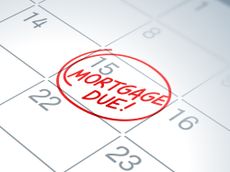Government to extend mortgage guarantee scheme to help first-time buyers
The mortgage guarantee scheme will continue beyond 31 December to offer 95% loans to help get first-time buyers on the property ladder. We explain everything you need to know about the scheme


The mortgage guarantee scheme will continue to help first-time buyers get on the property ladder with just a 5% deposit, the Treasury has confirmed.
The scheme, which launched in April 2021 and was due to expire at the end of this year, will now run until 31 December 2023 amid concerns that falling house prices and an upcoming recession will decimate the number of low-deposit mortgage deals.
The scheme has already helped 24,000 households, of which 21,000 have been first-time buyers, and gives people with only a 5% deposit the chance to buy a house up to the value of £600,000.
Low-deposit mortgages have become increasingly important in the last decade due to record house prices making it harder to save for a deposit.
It is good news for those struggling to save a big deposit who have seen the number of mortgage deals requiring a 5% deposit - seen as very risky loans by banks and building societies - drop from 283 on 23 September (the day of the mini Budget) to 130 as of 19 December.
Chief Secretary to the Treasury, John Glen MP said: “For hard-working families facing today’s challenging economic conditions, it’s right that we continue to help them secure their first home or move into their dream house. Extending this scheme means thousands more have the chance to benefit, and supports the market as we navigate through these difficult times.”
What is the mortgage guarantee scheme?
The scheme allows banks and building societies to buy an insurance policy from the government for mortgage loans taken out by buyers with a deposit of less than 10%.
Look After My Bills Newsletter
Get the best money-saving tips, tricks and deals sent straight to your inbox every week. Make sense of your money in partnership with The Money Edit.
It means that if the borrower is then unable to pay one month, the government pays that month’s mortgage payment - though there are repercussions for borrowers if this happens.
The scheme also cuts the minimum amount first-time buyers need to purchase their own home in half. For example, to afford a £200,000 property, a buyer will need a £10,000 deposit rather than £20,000.
To be eligible for the scheme:
- You don’t have to be a first-time buyer
- The property has to be valued at less than £600,000
- Can only take out a repayment mortgage, no interest-only mortgage deals allowed
- You are not limited to new builds like the Help to Buy equity loan scheme
- It can’t be used for buy to let properties
- It is only for individuals, not companies
- You have to pass all the usual mortgage affordability checks
How does the mortgage guarantee scheme work?
To access the scheme:
- You need a deposit of between 5% and 9%
- When you apply for a mortgage you must apply for it with a lender that is participating in the scheme. This includes: Lloyds, NatWest, Santander, HSBC, Barclays and Virgin Money.
- The government guarantees the portion of the mortgage over 80% (so, with a 95% mortgage, the remaining 15%), which sounds complicated but means if the borrower is unable to pay one month, the government pays that month’s mortgage payment
- Lenders pay the government a fee for each mortgage they offer via the scheme - this fee likely increases the cost of the mortgage in some way for the buyer, either via interest rates or product fees
- The guarantee is for the mortgage lender not you - it protects the mortgage lender not you
- In every other way, the mortgage works like a normal mortgage and you will be subject to the usual affordability checks
Katie is staff writer at The Money Edit. She was the former staff writer at The Times and The Sunday Times. Her experience includes writing about personal finance, culture, travel and interviews celebrities. Her investigative work on financial abuse resulted in a number of mortgage prisoners being set free - and a nomination for the Best Personal Finance Story of the Year in the Headlinemoney awards 2021.
-
 Three energy firms pay £8m in switching compensation - has your provider paid out?
Three energy firms pay £8m in switching compensation - has your provider paid out?More than 100,000 customers have received compensation after changing providers, but is now a good time to switch energy suppliers?
By Tom Higgins Published
-
 Save £300 on your supermarket shop with cashback accounts
Save £300 on your supermarket shop with cashback accountsBanks, credit card companies and cashback sites are all offering cashback on your supermarket shop, but can you use them all to max out your savings?
By Vaishali Varu Published
-
 Moving home: why failing to share your new address could cost you money
Moving home: why failing to share your new address could cost you moneyWhen you move home you’ll want to share your new address with family and friends – but being slow to update your contact details with councils, banks and the DVLA can be costly
By Sue Hayward Published
-
 Skipton Building Society to offer deposit-free mortgages for “trapped renters” - everything you need to know about 100% deals
Skipton Building Society to offer deposit-free mortgages for “trapped renters” - everything you need to know about 100% dealsEverything you need to know about how to get a mortgage with no deposit
By Katie Binns Published
-
 Stamp duty: are you entitled to a tax refund worth thousands?
Stamp duty: are you entitled to a tax refund worth thousands?There are plenty of reasons why homebuyers may be entitled to a stamp duty refund, but it’s important to only claim if you’re eligible for a refund (and beware the claims management companies)
By John Fitzsimons Published
-
 House price hotspots: 50 areas where property prices have shot up the most
House price hotspots: 50 areas where property prices have shot up the mostWhich areas have seen the strongest house price growth over the past decade? Discover the towns and locations around the UK where property prices have more than doubled.
By John Fitzsimons Published
-
 Faster mortgage support for Universal Credit claimants – what it means for you
Faster mortgage support for Universal Credit claimants – what it means for youIf you claim Universal Credit, you can now get quicker support with paying your mortgage. We look at when you can get it and how to access it
By Stephanie Baxter Published
-
 Should I fix my mortgage rate?
Should I fix my mortgage rate?Interest rates are expected to rise again on the back of stubborn inflation, before falling next year. We look at the pros and cons of fixing your mortgage rate and what to consider if you need to remortgage soon.
By Stephanie Baxter Last updated
-
 Selling your home: avoid these mistakes to get the best possible price
Selling your home: avoid these mistakes to get the best possible priceFrom boosting kerb appeal to clearing clutter, there are crucial steps to take to ensure you get the highest price when selling your home
By John Fitzsimons Last updated
-
 Interest rates rise to 4.25% - what does it mean for your money?
Interest rates rise to 4.25% - what does it mean for your money?The Bank of England has increased the base rate for the 11th time in a row. We look at whether rates could rise further this year, and what the latest hike means for your mortgage and savings
By Ruth Emery Published